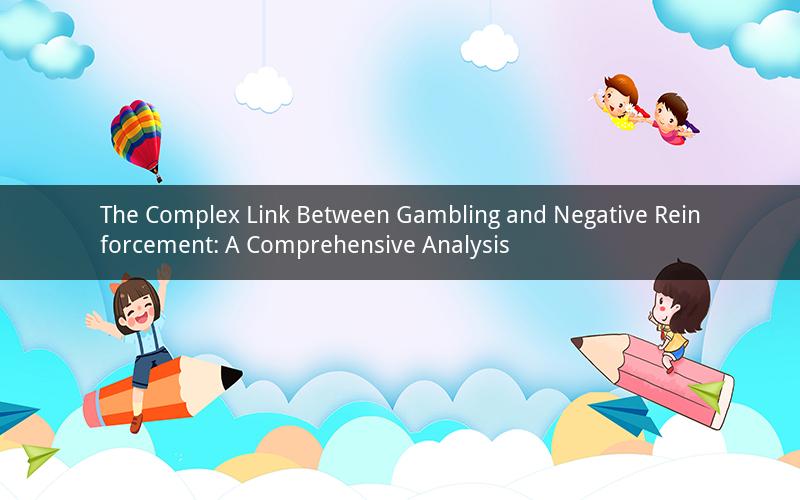
Introduction:
Gambling, an activity that has been a part of human culture for centuries, has always sparked debates and controversies. One of the key aspects of gambling that has been extensively discussed is its association with negative reinforcement. This essay aims to explore the relationship between gambling and negative reinforcement, examining the psychological and social implications involved.
I. Understanding Negative Reinforcement
1. Definition of Negative Reinforcement
Negative reinforcement refers to the removal of an aversive stimulus to increase the likelihood of a behavior occurring again in the future. In other words, it is the removal of something unpleasant to make a behavior more probable.
2. The Role of Negative Reinforcement in Gambling
Gambling involves a constant pursuit of rewards, which can be both positive and negative. Negative reinforcement plays a significant role in the addictive nature of gambling, as it reinforces the behavior by alleviating negative emotions or stress.
II. The Psychological Impact of Negative Reinforcement in Gambling
1. Stress and Anxiety Reduction
Gambling provides an escape from everyday stressors and anxieties. The anticipation of winning and the removal of negative emotions associated with stress contribute to the reinforcing nature of gambling.
2. Dopamine Release and Reward System
Gambling activates the brain's reward system, releasing dopamine, a neurotransmitter associated with pleasure and reward. The removal of aversive stimuli, such as stress, reinforces the gambling behavior.
III. Social Implications of Negative Reinforcement in Gambling
1. Family and Relationships
Gambling addiction can have severe social consequences, including strained relationships with family and friends. The relief of negative emotions through gambling can lead to neglecting personal and social responsibilities.
2. Economic Impact
Gambling addiction can lead to financial problems, as individuals may turn to gambling as a means to escape their problems. The negative reinforcement associated with gambling can exacerbate these financial issues, leading to further distress.
IV. The Role of Environmental Factors in Reinforcing Gambling Behavior
1. Accessibility and Availability
The accessibility and availability of gambling opportunities can significantly influence the likelihood of engaging in gambling behavior. The presence of casinos, online gambling platforms, and easy access to credit can reinforce the behavior.
2. Marketing and Advertising
The marketing and advertising strategies used by the gambling industry play a crucial role in reinforcing gambling behavior. The use of persuasive techniques and the portrayal of gambling as a source of excitement and thrill can contribute to the addictive nature of gambling.
V. Prevention and Intervention Strategies
1. Education and Awareness
Increasing public awareness about the risks and consequences of gambling addiction is essential in preventing its development. Education programs can help individuals understand the psychological and social implications of gambling.
2. Treatment and Support
Early intervention and access to treatment programs are crucial in helping individuals overcome gambling addiction. Therapy, counseling, and support groups can provide individuals with the necessary tools to break the cycle of negative reinforcement.
Questions and Answers:
1. What is the main difference between positive reinforcement and negative reinforcement?
Answer: Positive reinforcement involves the addition of a pleasant stimulus to increase the likelihood of a behavior, while negative reinforcement involves the removal of an aversive stimulus to increase the likelihood of a behavior.
2. Can negative reinforcement be addictive?
Answer: Yes, negative reinforcement can be addictive when it involves the removal of unpleasant stimuli, such as stress or anxiety, leading to the repetition of a behavior to continue experiencing that relief.
3. How can gambling addiction be prevented?
Answer: Preventing gambling addiction involves increasing public awareness, implementing responsible gambling policies, and providing education and support programs. Additionally, individuals should be encouraged to seek help when they recognize signs of addiction.
4. Can online gambling be more addictive than traditional gambling?
Answer: Yes, online gambling can be more addictive due to its accessibility, 24/7 availability, and the ability to engage in gambling from the comfort of one's home. These factors can contribute to a higher risk of developing gambling addiction.
5. How can treatment programs help individuals overcome gambling addiction?
Answer: Treatment programs for gambling addiction can help individuals by providing therapy, counseling, and support groups. These programs aim to address the underlying psychological and social factors contributing to the addiction, while also helping individuals develop healthier coping mechanisms.